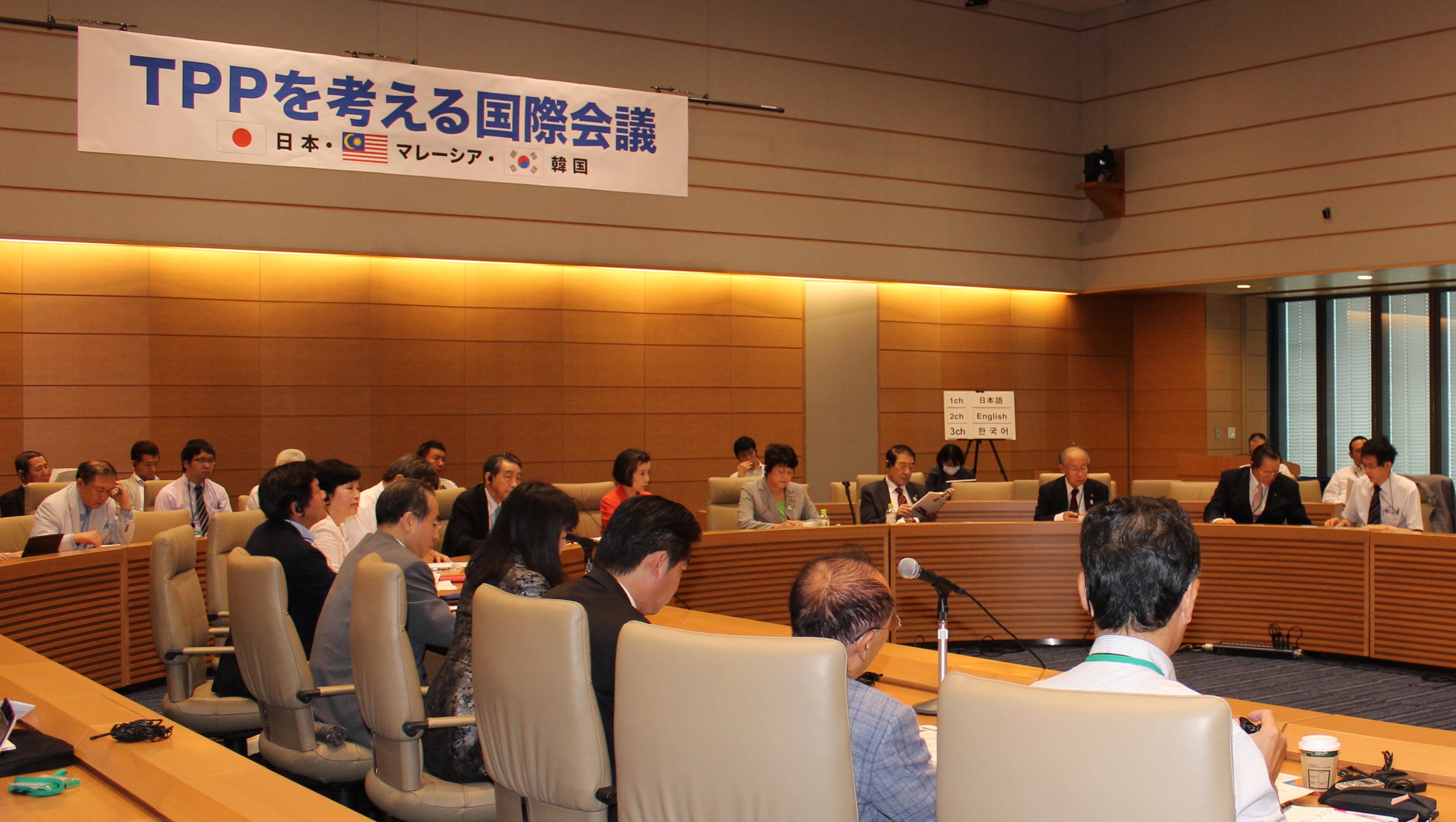A group of lawmakers and citizens opposing the Trans-Pacific Partnership free-trade talks held a conference on Tuesday, October 1, to express concerns over the confidentiality of the ongoing negotiations.
Attendants of the conference, including lawmakers from Malaysia, feared that the TPP negotiations led by the United States would proceed with priority on expanding economic benefits, resulting in wider gaps between the rich and the poor. They shared the view that it is necessary to ask the TPP member governments to disclose information on the negotiations to avoid the pact from harming each country’s national interests.
Nurul Izzah Anwar, a member of the Malaysian Parliament from the People’s Justice Party, urged the TPP negotiators not to make the talks follow the pattern created by the U.S., although it is the world’s superpower. Anwar criticized the fact that disclosure of information by the TPP member countries is insufficient, adding that lawmakers should work together actively to demand disclosure of information concerning the negotiations.
Referring to the issue of disclosure, Sang-Beom Seo, a lawyer from South Korea, reported on the insufficient disclosure of information on the U.S.-South Korea free trade agreement, stressing that the governments declined to present information on the negotiations. Only the final draft was disclosed to the public, he said, adding that the draft was filled with difficult terminology and most of the people could not understand it.
Charles Santiago, a member of the Malaysian Parliament from the Democratic Action Party, expressed fear that the ongoing TPP discussions in the area of intellectual properties would make it difficult for consumers to obtain low-price generic drugs which are manufactured without a license from innovator companies. Santiago stressed that trade issues should not be linked with issues of life and death.
Satoshi Daigo, professor emeritus of the University of Tokyo, said the issue of generic drugs is a matter of vital importance, adding that ‘money gone, lives gone’ should not be the case.
Rikkyo University professor Kaku Yanchun reported on the cases of infringement on personal rights conducted after the U.S.-South Korea free trade agreement came into effect, warning that under the TPP negotiations, Japanese companies and customs could also be changed to benefit U.S. firms.
Anwar stressed that more information should be available through the Internet and other media so that the public of each TPP member country increase awareness toward the TPP negotiations. He said that both Japan and Malaysia should put forth their stance against the U.S., calling for cooperation to make the negotiations more acceptable to each country.
(Oct. 2, 2013)


